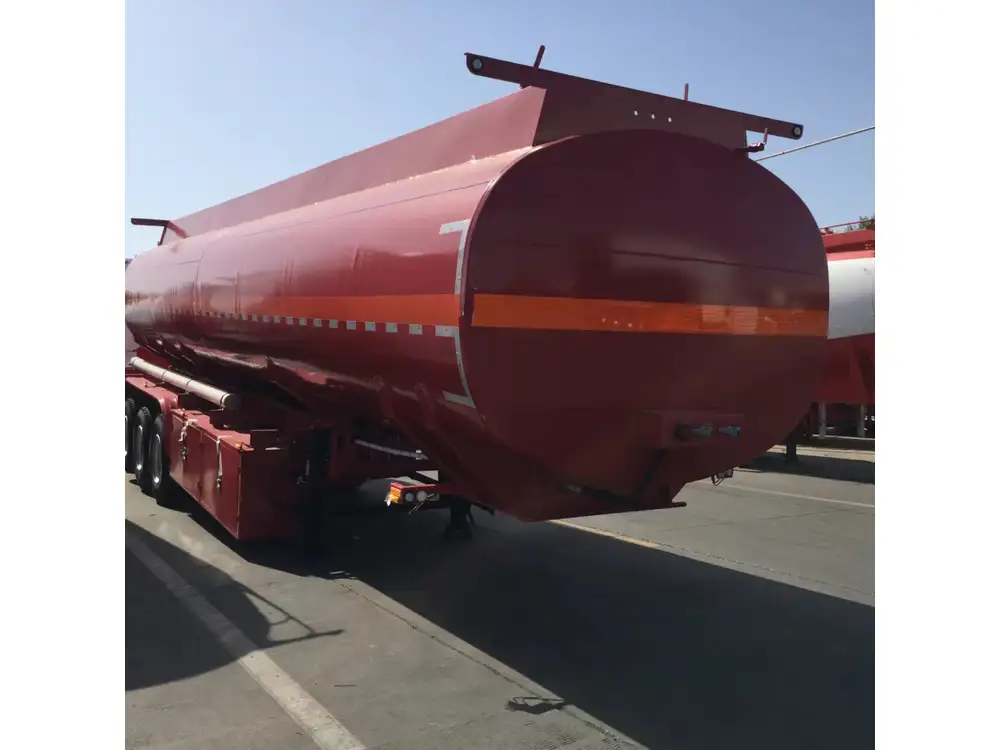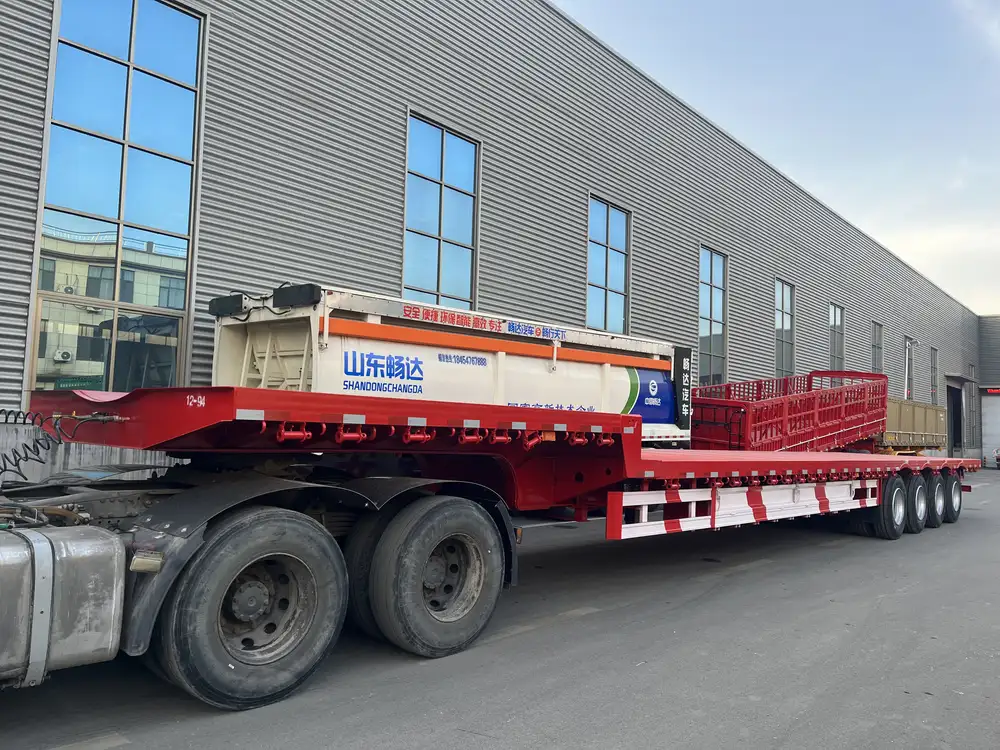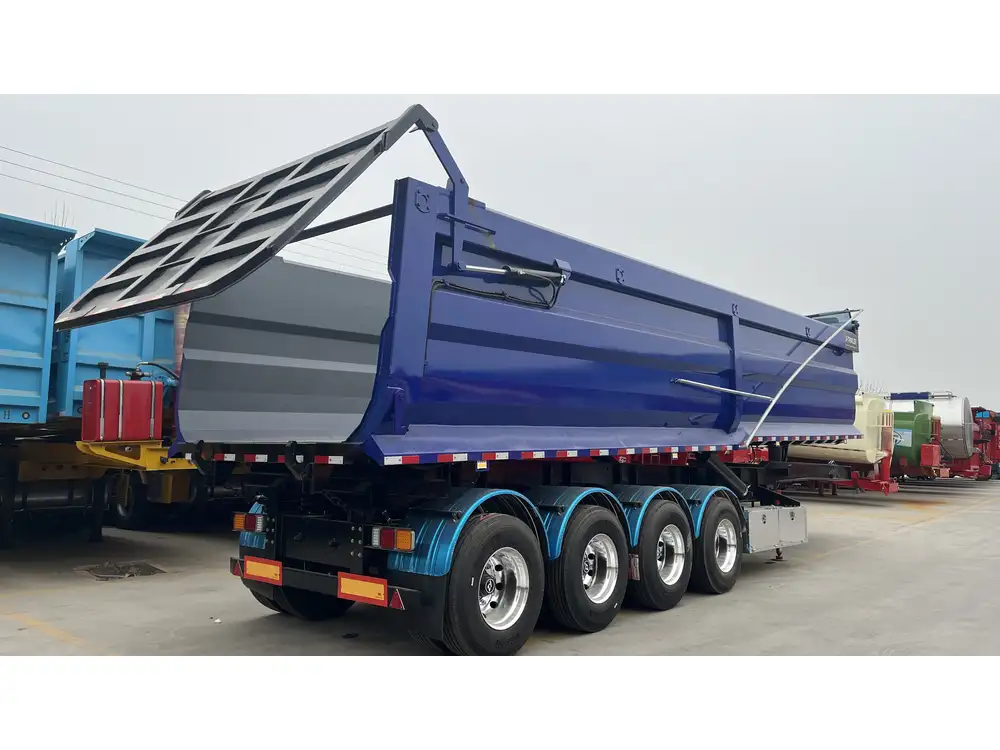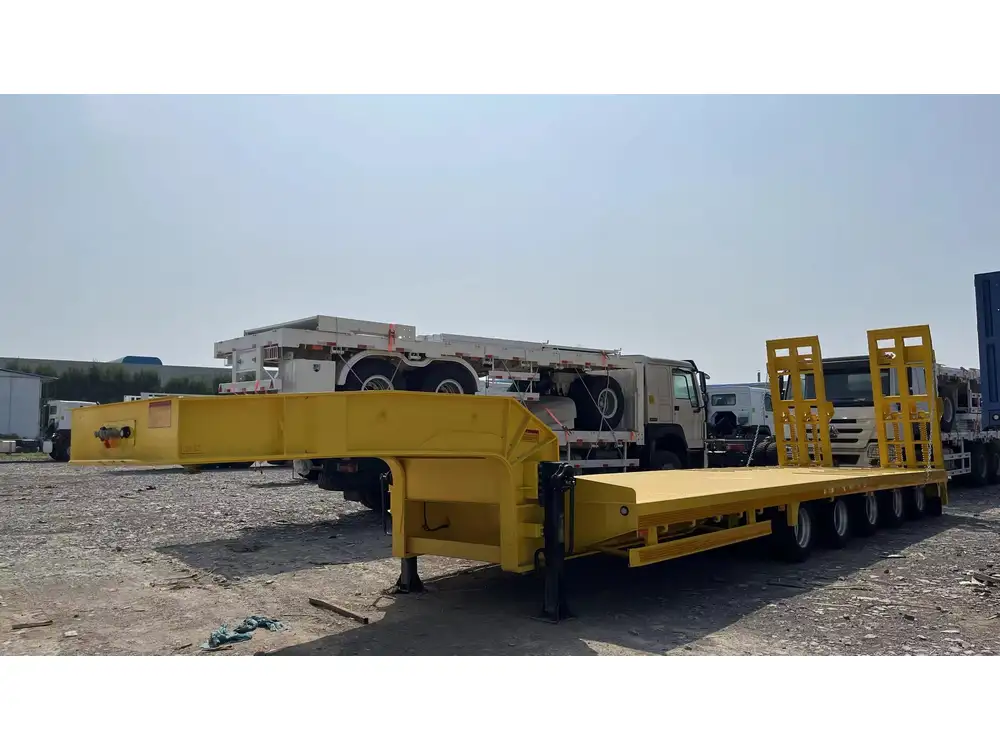When it comes to transporting goods efficiently across long distances, skeletal trailers are a popular choice among logistics companies. Their design flexibility and capability to carry ISO containers make them indispensable in the freight sector. However, understanding skeletal trailer hire prices can be enigmatic due to various factors influencing costs. In this article, we delve into the myriad aspects surrounding skeletal trailer hire prices, providing valuable insights that facilitate smart decision-making in logistics management.
Understanding the Factors that Influence Skeletal Trailer Hire Prices
To make informed choices regarding the hire of skeletal trailers, it’s essential to comprehend the various factors that impact pricing. These determinants can be categorized into several dimensions:
| Factor | Description |
|---|---|
| Type of Skeletal Trailer | Different skeletal trailer designs (e.g., single, double) can vary in cost. |
| Duration of Hire | Rental costs fluctuate based on the length of the hiring period. Short-term vs. long-term rates can differ substantially. |
| Geographic Location | Rental prices can vary widely depending on the region due to demand and operational costs. |
| Rental Company Reputation | Established companies may have higher prices due to brand reliability and extensive service options. |
| Additional Equipment Needs | Supplementary items (e.g., twist locks, tarpaulins) can increase the overall rental fee. |
| Insurance and Liability | Additional costs associated with insurance can impact total hire prices. |
| Market Demand and Supply | Seasonal demand (e.g., holiday shipping) can lead to price fluctuations. |
Types of Skeletal Trailers and Their Impact on Pricing
Skeletal trailers come in multiple types, each tailored for specific applications. Understanding these types and how they affect hire prices is crucial.
Single Skeletal Trailers: Typically designed for transporting one container, these are usually less expensive to hire. They are suitable for smaller loads or shorter hauls.
Double Skeletal Trailers: These can hold two containers simultaneously, increasing transportation efficiency but often resulting in higher rental costs. Companies often choose this option for larger shipments that require both speed and capacity.
Extendable Skeletal Trailers: Ideal for oversized cargo, extendable options can accommodate larger and longer loads. The versatility of these trailers often comes at a premium price.

Duration of Hire: Short-term vs. Long-term Costs
When it comes to skeletal trailer hire, duration is a pivotal factor in pricing.
Short-term Hire (Daily/Weekly): Generally more expensive on a per-day basis, short-term rentals cater to companies needing immediate, temporary solutions. The flexibility of these hires can often justify the higher costs for time-sensitive logistics.
Long-term Hire (Monthly/Yearly): If your transportation requirements are ongoing, long-term rentals are more cost-effective. Many companies offer significant discounts for extended contracts, reducing overall expenditure.
Geographic Location Considerations
The location where the trailers are hired can dramatically affect the costs. In densely populated urban areas, demand may lead to higher prices compared to rural locations. Additionally, some regions may have limited supply, amplifying rental prices even further.
The Role of Rental Company Reputation
Renowned rental companies may charge higher fees but often compensate with superior services, maintenance, and reliability. It’s vital to balance your budget with the assurance of quality. Lesser-known companies might offer lower prices, but this could come at the expense of service quality or trailer condition.

Additional Equipment Needs and Their Impact on Costs
The base price of hiring a skeletal trailer often does not include additional required equipment. Consider the following:
Twist Locks: Essential for securing containers, the cost for these can add up, especially if they are rented separately.
Tarpaulins and Covers: For businesses transporting items that need protection from the elements, hiring covers may be necessary.
Additional Trailers or Extensions: For larger operations requiring multiple trailers, added costs can accumulate.
Insurance and Liability Costs
It’s imperative to consider insurance as part of the total hire cost. Rental companies may offer various insurance packages:
Basic Liability Coverage: Often included; however, it may only cover a portion of potential damages.
Comprehensive Insurance: Provides more extensive coverage but will naturally increase rental fees.
Users should carefully evaluate their operational risk and choose an insurance plan that adequately safeguards their interests.
Seasonal Demand and Its Influence on Hire Prices
An often-overlooked factor in the rental market is seasonality. Increased demand during peak shipping seasons (e.g., holidays) can inflate hire prices significantly. Logistics managers should be cognizant of these fluctuations and plan accordingly, ideally securing trailers far in advance of anticipated busy periods.

Comparing Skeletal Trailer Hire Prices: A Step-by-Step Approach
When searching for the best skeletal trailer hire prices, a structured comparison is crucial. Here’s a systematic approach to help you navigate the selection process:
Step 1: Research Multiple Suppliers
Start with reputable skeletal trailer rental companies in your area. Create a shortlist by considering:
- Company reviews and ratings
- Fleet condition and variety
- Range of services (including insurance options and additional equipment)
Step 2: Request Quotes
Request detailed quotes from each company on your shortlist. Ensure the quotes include:
- Base rental fees
- Duration of the rental
- Additional charges (insurance, equipment, etc.)
- Delivery and pick-up fees if applicable

Step 3: Analyze the Cost Breakdown
Once you have multiple quotes, analyze the cost components. Look for hidden fees, and negotiate where possible. Pay attention to companies that demonstrate transparency in pricing versus those that provide vague information.
Step 4: Evaluate Service Offerings
Beyond costs, it’s critical to evaluate what each rental company offers in terms of service. Examine:
- Maintenance policies: Does the company guarantee maintenance during the rental period?
- Assistance availability: What kind of roadside assistance or support is available if issues arise?
- Flexibility: Are there options for extending the hire or switching equipment if your needs change?
Step 5: Make an Informed Decision
After a comprehensive comparison, weigh the price against the service quality. Opting for the cheapest rental might save money initially but can lead to increased costs if issues arise that could have been mitigated with a more reliable provider.

Frequently Asked Questions About Skeletal Trailer Hire Prices
What is the Average Cost of Hiring a Skeletal Trailer?
While prices can vary widely depending on the factors discussed above, standard daily rates for skeletal trailers generally range between $100 – $300. Discounts for longer hiring periods can lower this figure significantly.
Are there Frequent Discounts Available for Skeletal Trailer Rentals?
Many rental companies run seasonal promotions or offer discounts for long-term hires. It’s advisable to inquire directly with providers about any current offers that may apply to your situation.

What Documents are Required for Renting a Skeletal Trailer?
Typically, you will need:
- A valid driving license
- Proof of insurance
- Business identification for corporate transactions Ensure all necessary documentation is prepared to avoid delays during the rental process.
What Should I Do if the Trailer Breaks Down?
Review the rental agreement, as reputable companies often provide roadside assistance or specific procedures for breakdowns. Having a plan in place ensures minimal disruption to your operations.
Conclusion
Navigating the landscape of skeletal trailer hire prices can be daunting, yet armed with the right information, businesses can thrive. These trailers play a pivotal role in the broader logistics sector, and understanding various intricacies—from types, duration, and location impacts to additional equipment and insurance—enables logistics managers to make sound, cost-effective decisions.
By thoroughly researching, comparing, and evaluating potential suppliers, you can ensure that you receive not only competitive pricing but also reliable service, directly contributing to the efficiency and productivity of your operations.



